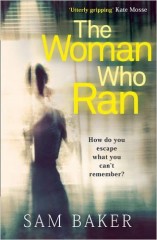
This was a bit of a slow burner for me. I didn't really gel with either Gil or Helen until a few chapter in, but by the last third I was totally hooked.
The tension of the novel was quite beautifully crafted. Though it was building up to an inevitable facing of the enemies, it didn't suffer from a sense of predictably at all.
I'm not sure what the "ghost" of the Iraqi boy was there to symbolise - whether it was guilt, regret, innocence lost, or the sense of Helen's guardian angel. Similarly I was unsure of the complex (or was it?) relationship between Gil and Helen. Was it an infatuation on Gil's part, or was it him viewing Helen as a newcomer - as a story to fill the void of his retirement? What did Gil offer Helen in return? A sense of security? An unwanted ear to her story? A father figure? I don't know the answer now I've completed the book any more than I did whilst reading it to be fair!
The harrowing details of the war which Helen herself was married into, sounded all to realistic for me to be comfortable with. Though we are fed only snippets of the horror she endured, one gets the sense of how she became entrenched in such a controlling and abusive relationship with Art. Showing how even successful, intelligent women (and men) are belittled and denigrated so thoroughly that they accept this abuse as part of their daily existence.
The setting of Wildfell Hall is a true reflection of how desolate, isolate and alone Helen was. Gosh, getting a bit deep here!
I very much enjoyed this book. I was a little nonplussed by the ending and the 2 dated excerpts seemed a bit tagged-on for my liking, but I can forgive those on the merit of what went before.
The Woman Who Ran is a perfect curl-up-on-the-sofa book.



